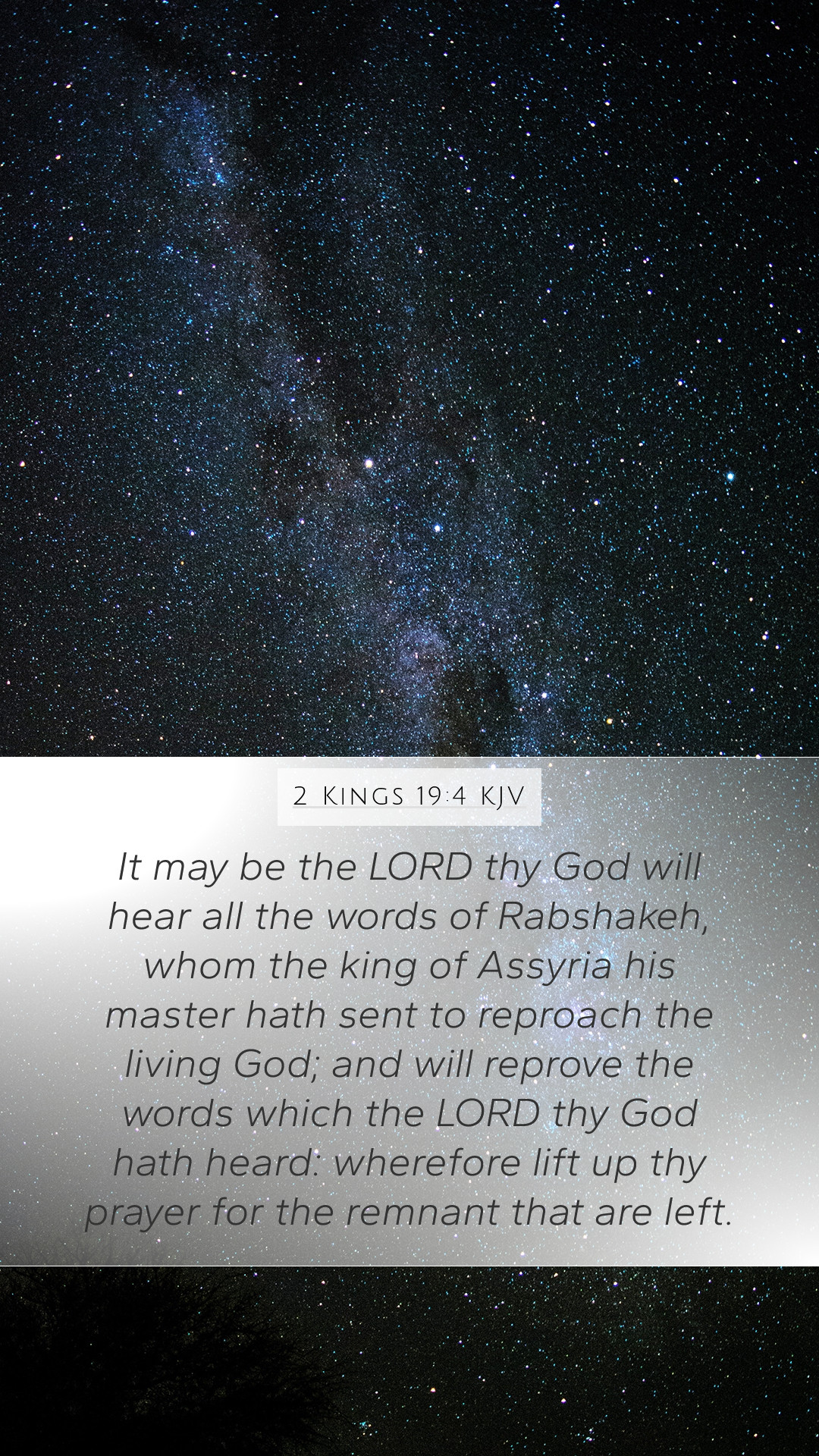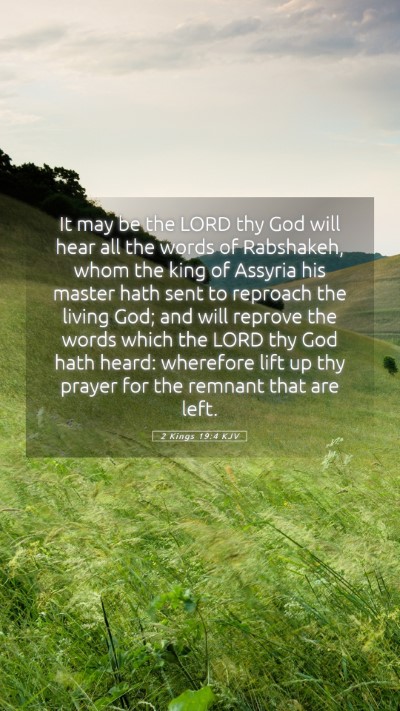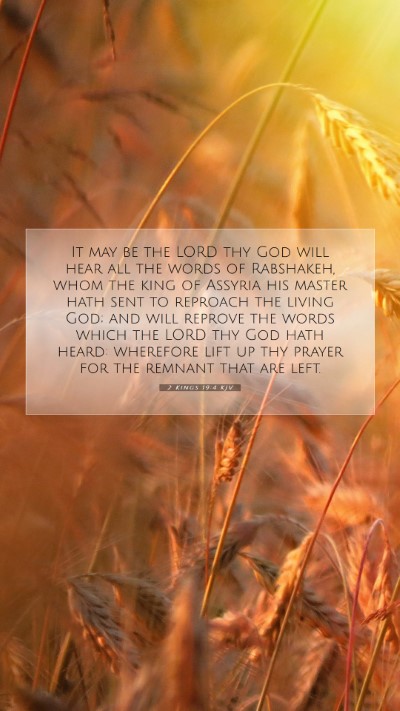Understanding 2 Kings 19:4
Bible Verse: 2 Kings 19:4 - "It may be that the LORD thy God will hear all the words of Rabshakeh, whom the king of Assyria his master hath sent to reproach the living God; and will reprove the words which the LORD thy God hath heard: wherefore lift up thy prayer for the remnant that is left."
Overview and Significance
This passage occurs during a critical moment in the history of Jerusalem as the Assyrian army, under King Sennacherib, threatens the city. The verse captures the essence of hope amidst despair, as it emphasizes the importance of prayer and reliance on God in the face of overwhelming challenges.
Bible Verse Meanings
-
Divine Hearing: The phrase "LORD thy God will hear" highlights God's attentive nature towards His people. As emphasized by Matthew Henry, it suggests that no cry or supplication goes unheard by God.
-
Recognition of Reproach: Rabshakeh's words, filled with scorn against Israel's God, reflect the challenges believers face from the world. Albert Barnes explains that the Assyrian representative seeks to undermine their faith by portraying God as powerless.
-
Prayer for the Remnant: The call to "lift up thy prayer for the remnant that is left" indicates that even in dire circumstances, there remains a faithful group seeking God's protection and intervention. Adam Clarke points out that this remnant symbolizes hope and preservation of true faith amidst adversity.
Bible Verse Interpretations
This verse can be interpreted as a poignant reminder of the importance of communal prayer and support during trials. It reflects the collective responsibility of the faithful to intercede on behalf of others. The principles found in this text can be applied to modern-day gatherings, such as bible study groups and online bible study sessions, emphasizing that prayer remains a powerful tool for believers.
Key Themes in This Passage
- Faith in Action: The urgent need to pray indicates a proactive faith. Believers are called to action, reinforcing the idea that faith must be coupled with earnest prayer during trials.
- God's Sovereignty: Rabshakeh's insults serve as a contrast to the absolute authority of God. This theme reassures readers of God's ultimate control over earthly powers and situations.
- Hope in Despair: The mention of the "remnant" signifies hope that persists even in bleak circumstances, reinforcing the notion that God always preserves a faithful witness.
Historical Context
The backdrop of this verse is rooted in the historical unfolding of Israel's tumultuous relationship with foreign powers. The Assyrian conquest posed existential threats to Israel, and Rabshakeh's taunts were part of a broader political strategy to demoralize Jerusalem's inhabitants. Understanding this context enhances the scripture analysis of the verse, illustrating the historical realities that shaped its significance.
Application of 2 Kings 19:4 in Today's Life
For modern believers, this verse encourages reliance on God during times of oppression or doubt. The call to prayer and seeking God's intervention resonates with the enduring human experience of vulnerability. Bible study tools and Bible study guides can facilitate deeper engagement with this text, allowing individuals to explore its implications for their lives, particularly through themes of hope and resilience.
Bible Cross References
- Isaiah 37:4: Highlights the role of prayer and divine intervention regarding Jerusalem's plight.
- 2 Chronicles 32:20: Emphasizes King Hezekiah's appeal to God during the Assyrian siege.
- Psalms 50:15: Encourages believers to call upon God in times of trouble for rescue and deliverance.
Conclusion
In sum, 2 Kings 19:4 presents a rich tapestry of meaning that invites deeper exploration. Whether engaging in bible study lessons or personal reflection, the insights from public domain commentaries remind readers of the power of prayer, the importance of faith, and the hope that exists within God's sovereignty.


